Number of homeless people in US rises for first time since 2010: Report
The number of homeless people in the United States has increased for the first time since 2010, driven by a surge in the number of people living on the streets in Los Angeles, California, and other West Coast cities, according to a new government study.
Nearly 554,000 people were homeless across America during a one-night count in January of this year, a nearly 1 percent increase from 2016, the US Department of Housing and Urban Development said in a report released Wednesday.
Of that total, 193,000 people were unsheltered, meaning they had no access to nightly shelter and instead were staying in the streets, tents, vehicles and other places considered uninhabitable.
Increases are higher in several West Coast cities, where the explosion in homelessness has prompted at least 10 city and county governments to declare states of emergency since 2015.
Los Angeles and its surrounding suburbs saw their total homeless count top 55,000 people this year, the report found, an increase of more than 13,000 from 2016.
Four out of every five homeless individuals there are considered unsheltered, leaving tens of thousands of people with no place to sleep other than the streets or parks.
While the overall homeless population in the states of California, Oregon and Washington grew by 14 percent over the past two years, the part of that population considered unsheltered climbed 23 percent to 108,000.
Homeless advocates and local officials say, ironically, that the region’s booming economy is the main culprit for the surge in homelessness.
“A vibrant state economy hasn’t translated into a quality of life improvement for a lot of Californians,” said Sara Kimberlin, a senior analyst at the California Budget and Policy Center.
Rents have soared beyond affordability for many low-wage workers who until just a few years ago could typically find a place to stay.
Now, even a temporary setback can be enough to leave lower-wage workers out on the streets.
Observers say that the federal government’s response to homelessness is lackluster. Government investment in low-income homes has lagged since it was slashed during the administration of former President Ronald Reagan.
A lack of affordable housing, combined with falling wages at the lower end of the US pay scale, has been cited by analysts as a cause for homelessness in the US.
VIDEO | UNMHA exit: A legacy of failure in Hudaydah as violations persist
VIDEO | Winter hardships deepen suffering in occupied West Bank
VIDEO | Homes under occupation: When living rooms become military posts
War could reach your own doorsteps: Iraqi anti-terror group warns Iran’s enemies
IRGC: Iran holds upper hand in determining any war’s endgame
'Fingers on trigger': Iran warns of strong response while signaling openness to 'fair' deal
Iran’s power makes any hostile military action 'high-risk': IRGC deputy cmdr.
India's PM Modi pays tribute to veteran politician killed in plane crash


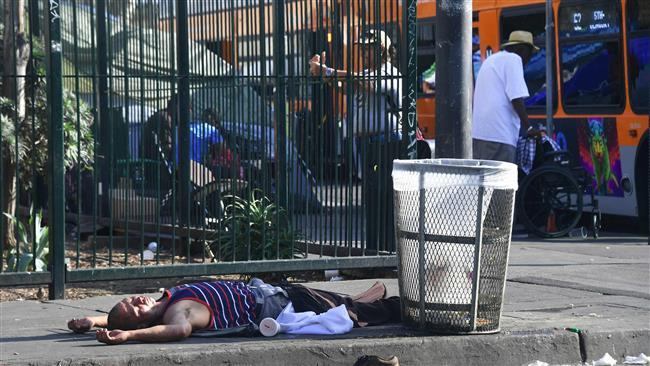



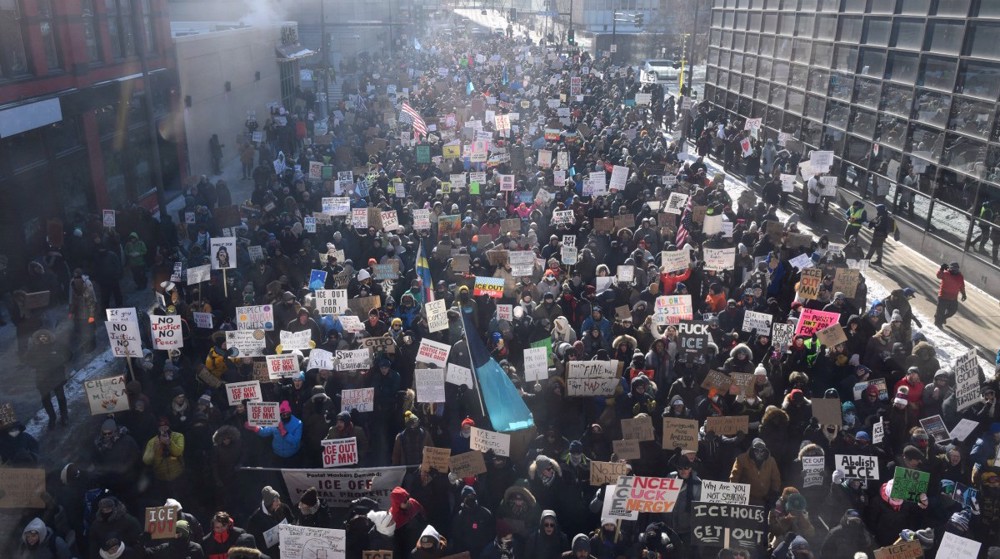



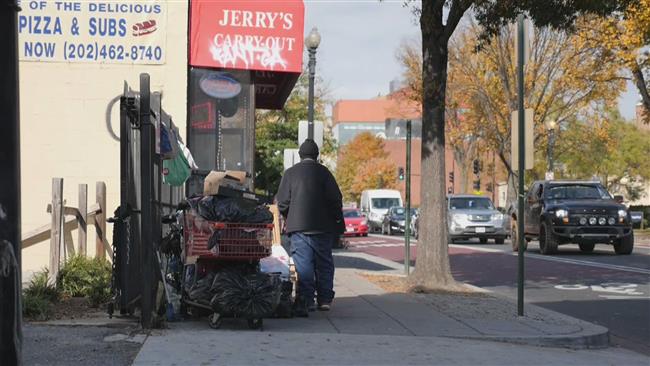
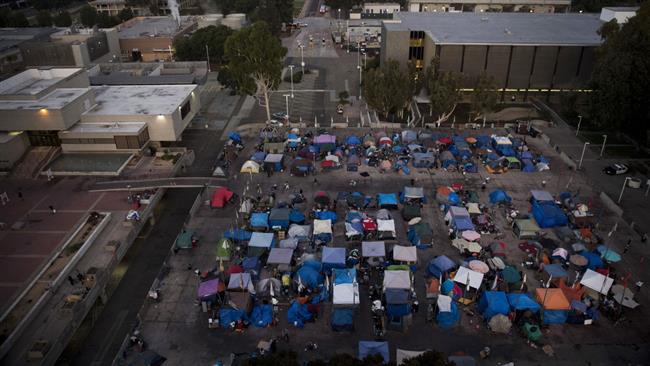
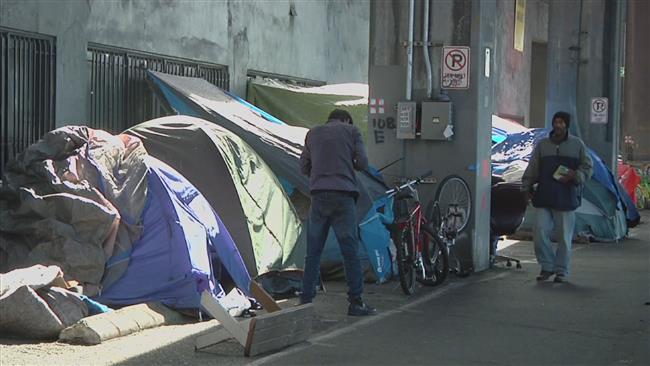



 This makes it easy to access the Press TV website
This makes it easy to access the Press TV website